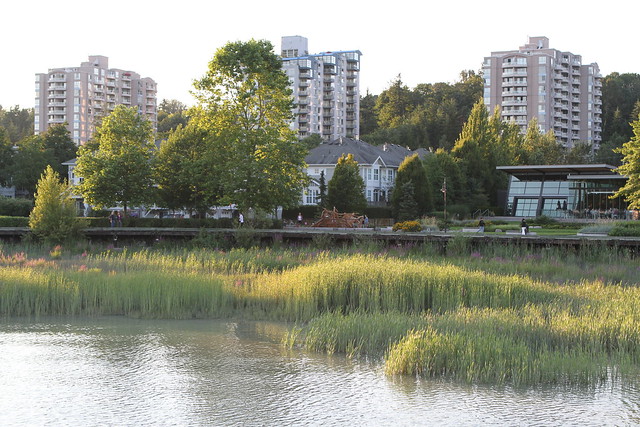In 2008 a financial crash in the United States was quickly followed by the most severe global economic contraction since the Great Depression. Despite an eventual recovery from what local real-estate executives termed the “recession for sissies,” Vancouver was deeply effected by the crash. By late 2008, condo sales and construction — a signpost of economic health in Vancouver’s real-estate dominated economy — stooped to record lows. The purpose of this article is to show that although the local economy experienced a brief recovery in the years straddling the Olympic Games (2009-2011), it is is far from certain that the city can continue to withstand the ongoing effects of the global recession. The article anticipates the need for a struggle against austerity measures and budget cuts in the potential wake of new rounds of developer bailouts and financial crisis. Continued real-estate speculation, stagnant wages and relentless upward pressures on housing affordability show that the lessons of this century’s “Great Financial Crisis” have yet to be learned in Vancouver.
Category Archive: Housing
Along the north eastern shores of False Creek, between Science World and BC Place, lies a vast expanse of land owned by developer Concord Pacific. The parcel of land hosts Concord Pacific’s sales centre and is used primarily as rental space for special events.
Recently however, the lot has become host to an urban farm run by a group called SOLEfood. SOLEfood is a self-described “social enterprise” that grows produce in order to sell it at farmers markets, as well as directly to local restaurants. While initially funded by grants and donations, the project aims to be self-sustaining.
While Concord Pacific is leasing the property to SOLEfood for three years at no cost, the farm is highly profitable for the developer. Under the City of Vancouver’s tax classifications, the property would normally be designated class six: “business or other,” with a taxation rate of 1.75 per cent. The presence of the urban farm re-designates the lot to class eight, or “recreation and non-profit,” which lowers the tax rate to 0.56 — less than a third of the original rate.
Concord Pacific’s project map shows that the company intends to develop a number of sites on the lot, near where the Georgia Viaduct now sits, by 2020. The SOLE in SOLEfood stands for Sustainable, Organic, Local, and Ethical. With a three year lease on a lot intended to be developed in less than a decade, it would seem that sustainability is not its strongest feature.
Concord pays around half a million dollars per year in taxes on the property, 10 Pacific Boulevard. In a recent interview with Zoe McKnight of the Vancouver Sun, the company estimated their savings via SOLEfood in the $15,000 range. However, if the new urban farm tax rate is applied to the entire property, Concord will pay only one-third of its taxes, saving instead over 300 thousand dollars per year.
Originally published at timlouis.ca
While the world watches the closing ceremonies of the 2012 Summer Olympic Games in London with excitement and enthusiasm, now is the perfect time to reflect on the Vancouver 2010 Olympics, and to draw conclusions that the two years that have passed allow us to draw.
In the years leading up to the Vancouver 2010 Olympics, many promises were made in an effort to win over public support. One of the most important promises was the delivery of social housing – lots of social housing. By the time the negotiations and roundtables leading up to the Vancouver Olympics were over, there was a concrete promise that if the city hosted the 2010 Olympics, there would be a Housing Legacy with over 3,200 units of social housing constructed prior to the opening ceremonies of the Olympic Games. With the benefit of hindsight we now know that this commitment was hollow. Not one unit was built in time for the Games, and after the big event the idea of a Housing Legacy was dropped.
Those who study the Olympics have documented the enormous amount of public money the Games absorb – not for the benefit of the community but for the benefit of the large corporations that earn sizable contracts and countless benefits. London is in many ways a spitting repeat of Vancouver. In both cities, the promised Olympic Village housing was shrewdly converted into a private gain for investors at the expense of taxpayers. In the wake of the global financial crisis of 2008, the municipal governments of London and Vancouver both stepped in as a lenders of last resort for their respective Olympic Village developments, resulting in massive bailouts for investors and developers.
Yesterday the City of Vancouver announced that it will be leasing some of its land to rental housing developers. The initiative is part of the city’s larger attempt to solve the housing crisis by giving market incentives for the construction of affordable housing in Vancouver. Private developers have been given tax breaks and fee exemptions under Vision’s two terms; this latest policy is a significant change because it adds subsidized land as part of the larger incentive package for the industry.
In the next few months the city will be taking proposals from developers for a total of five hundred new units of rental housing on six city-owned sites, mostly in South-East Vancouver. The submissions will be the first step in the life of 3-year projects slated for completion in 2015. According to city documents, the six sites initiative is slated to fulfill the city’s “non-market housing/social housing” section of the housing continuum. Recently the Pantages development saw the city approve “social housing” units in the DTES scheduled to rent at $900 for a one-bedroom per month.




